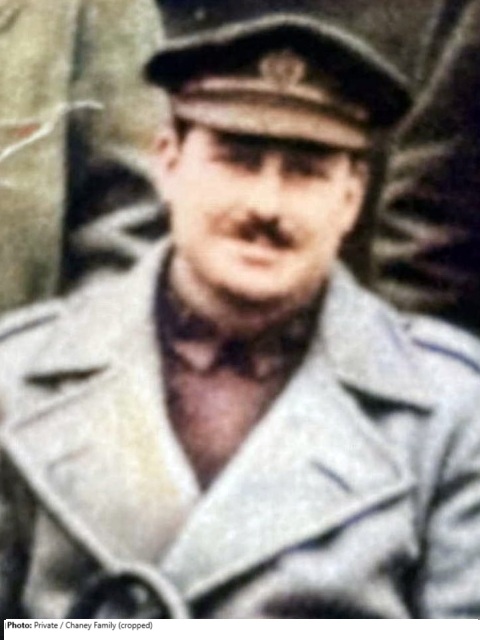Henry Chaney

Biographical information
| Roles | Competed in Olympic Games |
|---|---|
| Sex | Male |
| Full name | Henry Edward•Chaney |
| Used name | Henry•Chaney |
| Born | 5 August 1882 in Bermondsey, England (GBR) |
| Died | 27 February 1919 (aged 36 years 6 months 22 days) in West Kensington, England (GBR) |
| Affiliations | Army School of Musketry, Hythe (GBR) |
| NOC |  Great Britain Great Britain |
Biography
Before joining the Royal Air Force (RAF) at the start of World War I, Henry Chaney was a quartermaster-sergeant-instructor at the School of Musketry at Hythe, Kent. After transferring to the RAF, he was in charge of gunnery in the Training Division of the Royal Flying Corps (RFC), and also flew on several missions in France, before returning to England to help in the aerial defence of London. Major Chaney was mentioned and dispatches and awarded the OBE. At the time of his untimely death in 1919, he was working for the Air Ministry.
With his background at the School of Musketry, Chaney was a member of the elite “Army Sixty” as selected by the Army Rifle Association, and regularly competed at Bisley. In 1908 he was a member of the Great Britain Olympic rifle shooting squad, and took part in the free rifle, three positions, 300 metres event, but he was the lowest placed of the five Britons in 40th.
With some irony, Chaney was found dead in a pool of blood in his rented flat at Baron’s Court, London, in 1919. It transpired that he had shot and wounded his mother, who was staying with him at the time, before turning the gun on himself and firing a single shot into his left temple. The coroner recorded a verdict of “Suicide during temporary insanity”. At the time of his death, Chaney was penning a book about his life as a flying officer on the “front line” during World War I. Also, there were reports about him living with a younger woman at the Baron’s Court address, while his wife and seven children were living away in the country at Wokingham, near Reading.
Results
| Games | Discipline (Sport) / Event | NOC / Team | Pos | Medal | As | |
|---|---|---|---|---|---|---|
| 1908 Summer Olympics | Shooting |  GBR GBR |
Henry Chaney | |||
| Free Rifle, Three Positions, 300 metres, Men (Olympic) | 40 |
List mentions
- Listed in Olympians Who Committed Suicide (Committed suicide by shooting himself in the temple during temporary insanity, according to the coroner's report.)